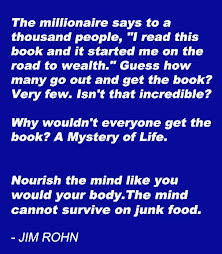
Learn a system of proven, practical techniques that increase your ability to learn and remember names, facts, figures and business information 400 percent faster than today. Learn how to memorize quickly, speed read, improve your brainpower and multiply your intelligence.
Session 1: The Learning Revolution - Who are the people who succeed? A message from Colin Rose. Three types of people and the differences between them. What is your most valuable asset? The new paradigm of education and employment: three major shifts. Six principles at the heart of this course.
Session 2: You Are A Genius - Using your brainpower to its full potential. Breakthroughs in brain research. Linear and global approaches to learning. Reasons why and how you can begin to function at exceptional levels. How your self-image determines your performance. What is an intelligent person? Seven different intelligences we all possess.
Session 3: The Six Stages of Accelerated Learning - The universal tools of learning. Developing a resourceful state of mind. Memorizing key facts. Demonstrating to yourself and others what you have learned. Reflecting on how well your learning went. Accessing your true potential. Escaping the trap of learned helplessness.
Session 4: Preparing Your Mind to Learn - Why a positive mental attitude is an essential part of success. Five keys to rapid adult learning: desire, motivation, relevance anticipation, positive expectations. A seven-step method for creating a resourceful state of mind. Written goals and inner dialogues. Relaxation, mind calming and learning.
Session 5: Getting the Facts - Gaining knowledge through sight, hearing and touch: the importance of multi-sensory learning. When teaching styles and learning styles don't match. Getting the big picture. Breaking down the learning task into small steps. Keeping a high interest level through questions. The many advantages of learning maps.
Session 6: Exploring the Subject - The Schwartzeneggar. Three critically important findings about intelligence. Four types of work: making the most of your natural abilities. A test to discover your dominant intelligences. The multiple-chance theory of education. Seven valuable learning activities. Thinking about a subject analytically: five questions.
Session 7: Memorizing the Material - The role of memory in the Information Age. Four logical stages of learning, plus one. Short-term vs. long-term memory. Connections, associations and remembering new material. A memory exercise. The four R's of memory: review, registration, retention, recall. The four steps of an ideal learning pattern.
Session 8: Sharpening Your Memory Skills - Concentration: the most important single quality for success. An exercise in concentration and two affirmations. Ways to develop a super memory through the use of heightened concentration. Taking a mental snapshot. How to remember something you've forgotten. Seventeen memory techniques and principles.












